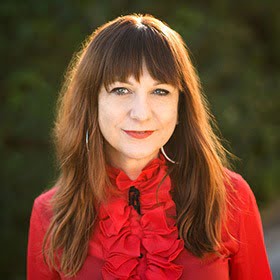Eating Disorder Psychologists & Counsellors Brisbane
The Centre for Human Potential Psychology and Counselling in Brisbane provides specialist counselling, psychology, and therapy treatment for those affected by eating disorders in Brisbane.
Our team of trained, empathetic eating disorder psychologists in Brisbane are trained to assess and diagnose eating disorders, develop personalised treatment plans, and provide support and guidance that addresses the challenges of those affected by eating disorders. Our psychologists are trained to understand the unique challenges faced during the process and provide a recovery-oriented treatment plans that help at every step of the journey.

Recognising & Finding Help for Eating Disorders
Eating disorders are far more common than their taboo would have you believe. The most recent survey from Deloitte Access Economics found that an estimated 1-million Australian’s (around 4% of the population) have had or continue to cope with an eating disorder.
Eating disorders can manifest and show symptoms in a number of different ways including:
- Strict self-control around food consumption
- An obsession with food and consumption
- Excessive concern around weight and appearance
- Constant fear of gaining weight
- Distorted body image
- Over-eating or binge-eating episodes
- Excessive exercise routines
- Telling those around you that you have eaten when you have not
- Abnormally low body weight
- Self-induced vomiting
- Incorrect laxative, diuretic, or diet tablet use
At CFHP, we believe that addressing any type of eating disorder begins with a conversation. We take an empathetic and patient approach to eating disorder treatment in Brisbane to ensure the best long-term outcome for the individual.
CFHP Eating Disorder Clinic Brisbane
We work with teens, young adults, and adults to address and treat eating disorders through personalised counselling and treatment in Brisbane. Our trained and empathetic eating disorder psychologists and counsellors in our Brisbane Clinics provide treatment for a range of eating disorders including:
Anorexia Nervosa
Binge Eating Disorder
Bulimia Nervosa
Body Image Disturbance
Avoidant Restrictive Food Intake Disorder (ARFID)
Rumination Disorder
Our team of specialist eating disorder psychologists specialise in determining the root cause of different eating disorders and providing personalised treatment plans that address the unique challenges faced by the individual.
Our Eating Disorder Counsellors

Eleanor Tan

Lisa Kunde

Chaminga Dhanapala
Speak with us
Don’t suffer alone – get professional, compassionate, and confidential support from our leading team of psychologists and counsellors.
Frequently Asked Questions
What is an eating disorder?
Eating disorders is all-encompassing diagnosis that describes a mental health condition relating specifically to food, eating, body weight, exercise patterns, and shape.
Eating disorders are characterised by an unhealthy relationship with food and eating and can manifest in different ways such as anorexia nervosa, bulimia nervosa, binge eating disorder, avoidant restrictive food intake disorder (ARFID).
What is the most common type of eating disorder?
Statistically, the most common eating disorder in Australia is binge eating disorder (BED) which accounts for roughly 50% of all eating disorders in Australia. In spite of the statistical prominence of binge eating disorder (BED), it continues to be one of the most under recognised eating disorders.
What are the treatment options for eating disorders?
Eating disorder treatment options will depend on the unique circumstances of the individual. Working with patients means uncovering the underlying causes behind eating disorders to effectively address and treat them.
Our trained eating disorder specialist psychologists will work to diagnose and treat you to determine the right treatment plan and come up with goals.
What types of therapy/counselling are used?
Therapy is the most important step in your journey and may include a mix of cognitive behaviour therapy (CBT), Solution-Focused Brief Therapy (SFBT), Acceptance and Commitment Therapy (ACT), Dialectical Behaviour Therapy (DBT) and Mindfulness practices.
Based on your circumstances, your psychologist may use a mix of different approaches to offer the best treatment.
What causes eating disorders?
There is no one personality type or trait that is associated with developing an eating disorder. However, eating disorders can result from a combination of biological vulnerability, environmental, and social factors.
Do you provide inpatient treatment for eating disorders?
No, we do not provide inpatient treatment for eating disorders. If our counsellors believe that inpatient treatment is required to treat malnutrition, physical health complications, or serious mental health issues, then this will be communicated at the time of your consultation.





